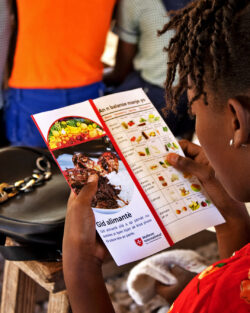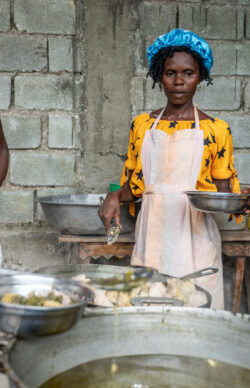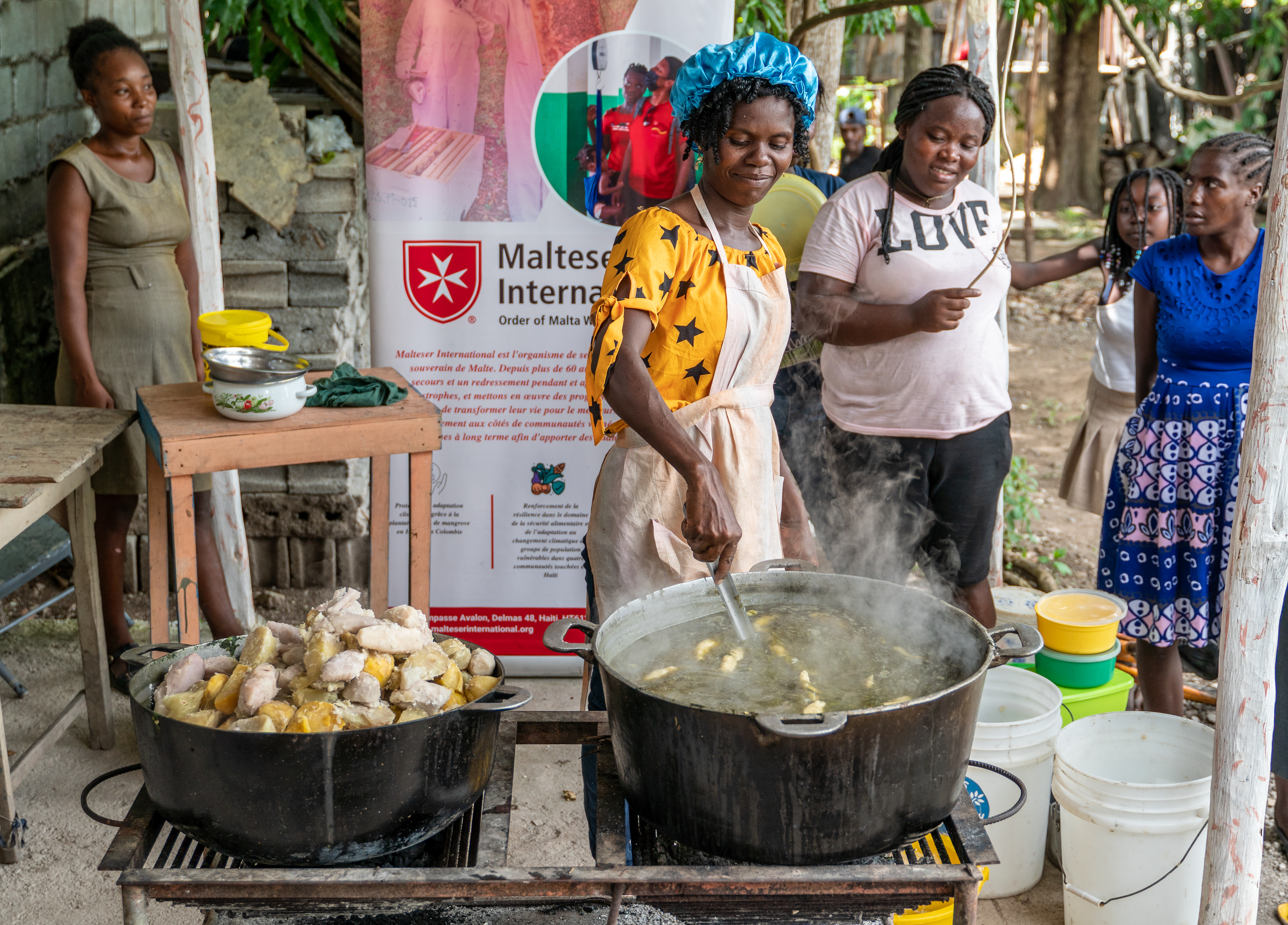Caribbean
Nutritious Cooking in Haiti
Words by Jéthro-Claudel Pierre Jeanty, MI Americas Communications Officer Haiti.
In Haiti, especially in rural areas, there is a widespread misconception about what to eat to eat well. Some people use unfounded criteria to determine whether a food item is of high quality or not.
Imported products, and those presented in aesthetically well-designed packaging, are generally considered to be superior in quality by most, helped by misleading advertising. In reality, they have little nutritional value. This has serious consequences on people’s health, especially children.

To address this alarming situation, Malteser International (MI) has undertaken to educate the population through parent leader clubs created in municipalities in the Nippes department. Parents are trained on how to prepare balanced food through the Primary Health Care and Nutrition project funded by the German Federal Foreign Office (GFFO). After theoretical training sessions led by the MI Americas team, practical cooking sessions called “Culinary Demonstration” always follow.
Each culinary demonstration is carried out by the beneficiaries themselves, with the support of an MI Americas team. They will review with the participants the lessons seen previously, such as the food groups (protective, builder and energy groups), while ensuring that the participants know how to balance their food according to the Haitian Food Pyramid using local products for the prevention and control of malnutrition.
Gina Mélé, a resident of the 3rd communal section Fond-Tortue, in the commune of Baradères, who participated in a culinary demonstration in August was very pleased with the knowledge she acquired during the training sessions as it will allow her to prepare her food and at a lower cost. During this particular culinary demonstration, the inhabitants of Fond-Tortue prepared a broth with products mainly harvested in their own gardens, including vegetables and local fish to the area.

When asked, “How should we prepare our food?” Mrs. Mélé responds, “To eat well, a person must eat foods that give strength, foods that build the body, and foods that protect the body.” After a long educational effort in this community, this is a message that the members of the parents’ clubs are beginning to master well.
In rural communities, we often see the sad reality of farmers selling their agricultural produce to buy food that sometimes has very little nutritional value.
Now, thanks to our interventions with the steadfast support of our partners, mindsets are beginning to change. Many farmers are increasingly consuming the produce from their own gardens, only selling part of it to meet financial needs. Through cooking demonstrations and knowledge sharing, local communities are not only rediscovering hope, but also empowering themselves to build a healthy, sustainable future for their children.
Your support can help continue this transformative work—together, we can provide the resources they need to thrive.
Please consider donating today to make a lasting impact.
